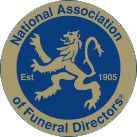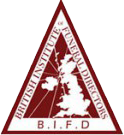Frequently Asked Questions
Losing a loved one can be a confusing and emotional time. We have provided some commonly asked questions below, but please get in touch if there is anything unanswered.
What should I do if a relative dies at home?
What should I do if a relative dies in hospital?
The Doctor says he / she won't issue the medical certificate. Why is this?
What does a coroner do?
Why do GP's charge for cremation forms?
The BMA website sets out the procedure:
“Before cremation can take place two certificates need to be signed, one by the GP and one by another doctor. Cremation Form 4 must be completed by the registered medical practitioner who attended the deceased during their last illness. Form 5 must be completed by a registered medical practitioner who is neither a partner nor a relative of the doctor who completed Form 4.
A fee will be charged for the completion of both Forms 4 and 5 as this does not form part of a doctor’s NHS duties . These fees will be paid by the funeral director and passed onto the family. Doctors are also entitled to charge a mileage allowance, where appropriate”.
Why do I have to register the death?
All deaths have to be registered, and the people closest to the deceased have a legal obligation to do this. Deaths in England and Wales or Northern Ireland should be registered within 5 days – if this is not going to be possible, you should inform the Registrar.
Which registrar’s office should I go to?
In England and Wales, the death has to be registered at the registrar’s office in the area where the death occurred. This is the case even if the death occurred a distance from home.
However there is a facility available to attend your local registrar’s office to register a death that occurred in another area. This is called ‘Registration by Declaration’, and involves the two Registrars transferring documents by fax and post in order to register the death. Depending on the circumstances, this can delay the date of the funeral.
Please refer to ‘Registering a Death’ on the ‘What to Do’ page.”
What will the registrar give me?
BD8 – This form is the official notification of the death to the Department of Work and Pensions
Death Certificates – These are copies of the Register Entry, and are the Certificates required by Banks, Insurance Companies etc. to attend to the deceased’s affairs. These are currently £11 per copy.
We have never been a religious family - do we have to have a vicar to take the ceremony?
What are green funerals and woodland burials?
Can I get any assistance with funeral costs?
The DWP Social Fund awards financial assistance to individuals who meet a number of criteria. To qualify, you, and all other family Members who share your responsibility for the funeral, must be receiving at least one of several benefits, and have insufficient savings to pay for the funeral. The DWP Funeral Payment will provide a contribution towards a simple funeral. If you want to claim, click here
What if something goes wrong?
Help with loss and bereavement


We're Here For You

National Association of Funeral Directors
The Funeral Director Code guides the actions, behaviour and standards of NAFD funeral home and supplier members. It is designed to help those in funeral services to act in the public interest and aspire to the highest professional standards.

British Institute of Funeral Directors
Since 1982, the BIFD has grown into one of the leading providers of education within the funeral service, and its Diploma in Funeral Service is the highest qualification available to those in the profession.

